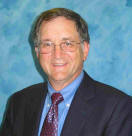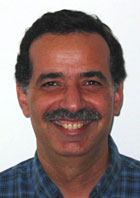
Dr. David Cohn is Program Director, Smarter Cloud at IBM Research. He focuses on Smarter Cities Cloud and cross-silo integration of municipal operations & citizen interaction. This Smarter Cloud example leverages information in the cloud to integrate applications, drive analytics and improve visibility. Previously, as Director, Business Informatics he supervised a team focused on improved modeling, transforming and integrating information and business structures and led IBM’s worldwide research strategy in support of Business Value. Dr. Cohn also directed IBM’s Austin Research Laboratory dealing with microprocessors, CAD design tools and high-performance system design. He also served as Director, Strategic Projects reporting to the Senior VP, Strategy at Armonk, NY. Before joining IBM, he was Professor of Computer Science & Engineering and Professor of Electrical Engineering at Notre Dame.
Many countries are rapidly moving towards a services-based economy. In keeping with this transformation, the area that has been broadly categorized as Information Technology Services has evolved immensely over the last 20 years. Today, it encompasses not only services that we typically associate with basic computing technology, such as information processing infrastructure and user applications, but also societal, governmental and industrial applications that are we call Services for a Smarter Planet. Rapid advances in technology, in particular in computer architecture and software that enables the processing of vast amounts of structured and unstructured data, have propelled this rapid evolution in novel Services.
The speaker will address several aspects of this transformation in the services industry, with emphasis on the design and delivery of services in the societal and governmental domains, such as next-generation healthcare, services for smarter governments and smarter cities.



